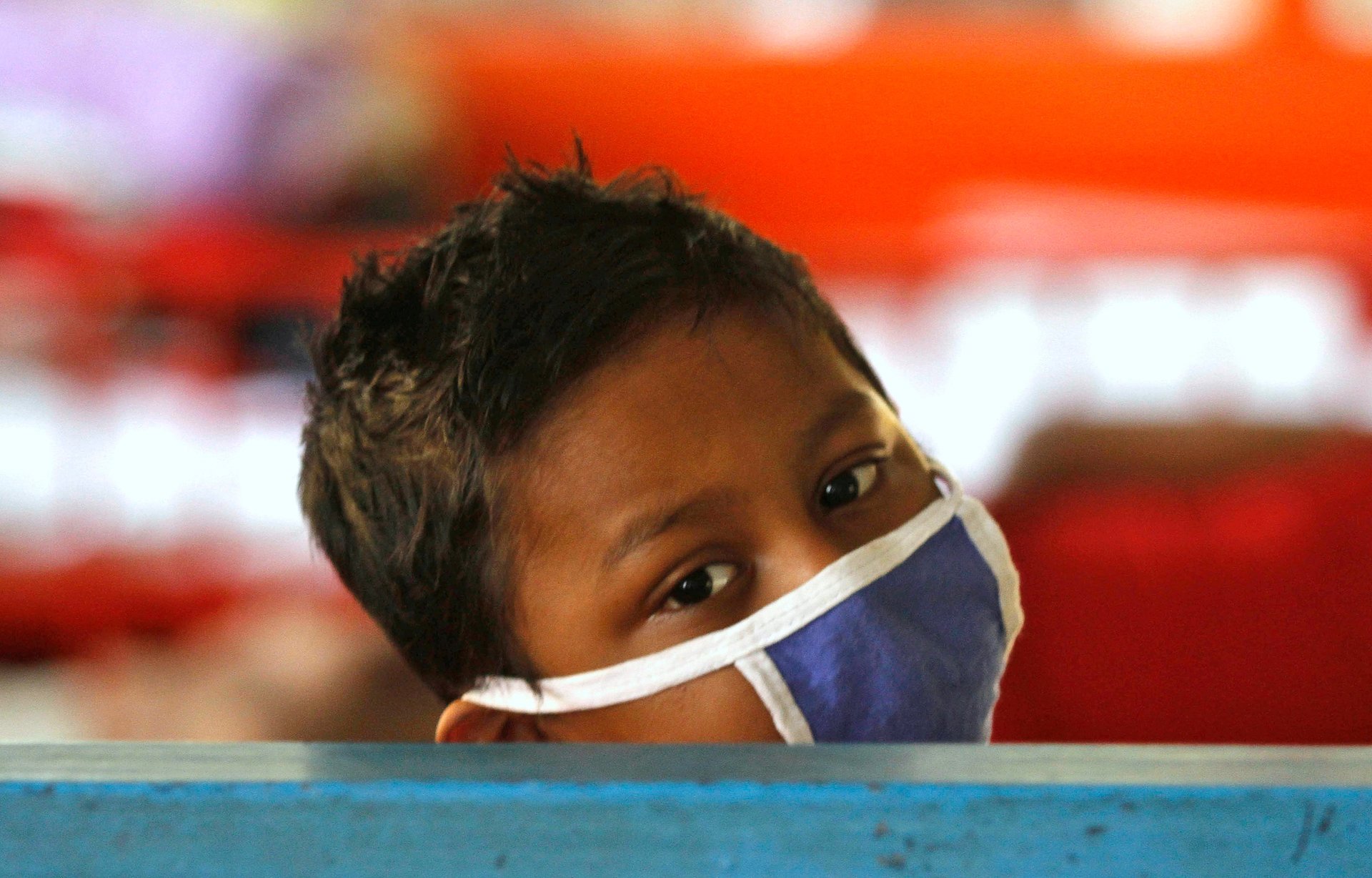Startups in India are trying to train AI to fight cancer
Oncology has evolved over the years in India. But, the term cancer still evokes shock and fear.


Oncology has evolved over the years in India. But, the term cancer still evokes shock and fear.
That’s because of two reasons: exorbitant treatment costs and poor survival rates. The country’s dismal patient-doctor ratio only adds to the despair. Overall, the estimated number of people in India living with some form of cancer stands at 2.25 million. In 2018 so far, up to 784,821 patients have died.
But now, young technology startups in the country are trying to use artificial intelligence (AI) and machine learning to make cancer treatment more accessible and affordable.
For instance, Bengaluru-based SigTuple analyses blood, urine, semen, chest x-rays, and retinal scans using an AI-based platform to develop testing patterns for pre-cancerous and cancerous cells. Mumbai-based UE Lifesciences provides AI-based, radiation-free devices for early cancer screening.
“These startups are developing solutions and devices for grass-root level treatment,” said Leslie Joseph, principal analyst at Forrester Research. “Once the system is fed with enough relevant data the solutions will be much cheaper. It also democratises the process of healthcare.”
The most common cancer
Breast cancer is the most common form—14% of all cases—of the disease in India, particularly among women, according to the National Institute for Cancer Prevention and Research. Up to 162,468 new breast cancer cases have been reported across the country in 2018 so far, of which 87,000 have been fatal.
In many cases, early detection can go a long way in saving the lives. And Bengaluru-based breast cancer screening startup, OncoStem, is doing just that.
The seven-year-old company has demonstrated that the recurrence of cancer can be predicted using features that human pathologists are typically not trained to observe. OncoStem, which secured $6 million in funding in September last year from venture capital firm Sequoia India, focuses on personalising cancer treatment based on specific needs of a patient and the nature of a tumour.
The startup has till now conducted 300 tests in over 100 hospitals.
“Most screening tests available today can detect tumors in breasts, but a majority of those detected tumours will be harmless,” said Manjiri Bakre, a cell biology expert and founder of OncoStem. “Our system, on the other hand, has the potential to read and analyse tissue abnormality and identify tumours that can develop into cancer. So, basically, we are nipping the problem in its bud.”
The company’s proprietary lab testing system also digitises historical medical records of patients, feeds into an AI-algorithm, which then analyses the reports to create actionable insights for doctors.
Venturing beyond diagnostics, Bengaluru-based startup Niramai is using AI for even treatment planning and new-drug discovery.
Our technology “solves issues of not just affordability, but also portability, skill-gap, safety, privacy, and accuracy, all of which are very important,” said Nidhi Mathur, co-founder of Niramai.
The company is using AI and machine learning to process, analyse, and interpret thermal images and generate clinical parameters that are not possible to visualise or measure with human eye alone. According to Mathur, Niramai’s algorithms can analyse 400,000 data points per person per screening, leading to automated, real-time and accurate breast cancer detection.
Niramai, which secured seed funding of $1 million in April last year, had screened over 4,000 women till September 2018.
Accuracy and affordability
One of the biggest benefits of using AI and machine learning is that these technologies can read vast amounts of data with accuracy, eliminating the manual time-consuming process. These technologies also reduce dependence on the limited judgement and skills of a single specialised expert.
“Technology has definitely made cancer treatment much better and accurate. Now we have a bird’s eye view of a patients’ medical journey, we have ready actionable insights that we can accept, reject, or modify,” said Bengaluru-based oncologist Naresh R.
While Niramai and OncoStem are focusing on the most frequently-occurring cancer, there are firms that have taken up other causes. AIndra Systems, for instance, uses AI-based computer vision to screen cervical cancer. The Bengaluru-based startup is focused on bringing innovative detection devices to India at affordable costs.
Perfint Healthcare, on the other hand, has developed a robotic system called MAXIO, which helps doctors plan customised treatment modules for their patients. MAXIO has already received approval from the US Food and Drug Administration. Now, Perfint is trying to find treatments that are non-invasive, unlike chemotherapy.
“In the absence of sophisticated alternate solutions to treating cancer, patients often undergo chemotherapy, which has huge side effects. Chemotherapy kills healthy cells also, which can further lead to fatality. But not all tumours are malignant and can be treated through targeted medicine,” Bakre of OncoStem said.
Harnessing the data
These innovations are just the starting point. As the AI-based algorithms set up by these startups learn more, they can ultimately be instrumental in bringing preventative health care to a much wider population.
“With the huge population of over one billion, India has vast amounts of fragmented data, which can be digitised and fed into the system, which will ultimately improve accuracy and precision,” Sarayu Natrajan, a doctoral candidate at King’s College in London, said.
No wonder, large technology firms such as IBM and Google are also stakeholders in the Indian healthcare space.
Google’s DeepMind Health platform works with clinics and health institutes across the world to implement AI in healthcare, including cancer, while IBM’s Watson for Oncology extensively evaluates medical records to prescribe the best course of treatment for cancer.
Designed with the New York-based Memorial Sloan-Kettering (MSK) Cancer Center, IBM’s Watson can analyse both structured and unstructured data, including the handwritten documents. Bengaluru-based Manipal Hospitals works with IBM’s Watson to provide diagnosis and treatment to over 20,000 cancer patients.
If all these developments are anything to go by, one of the oldest villains of the human health care story could potentially lose its fangs and talons in a future not too far away.